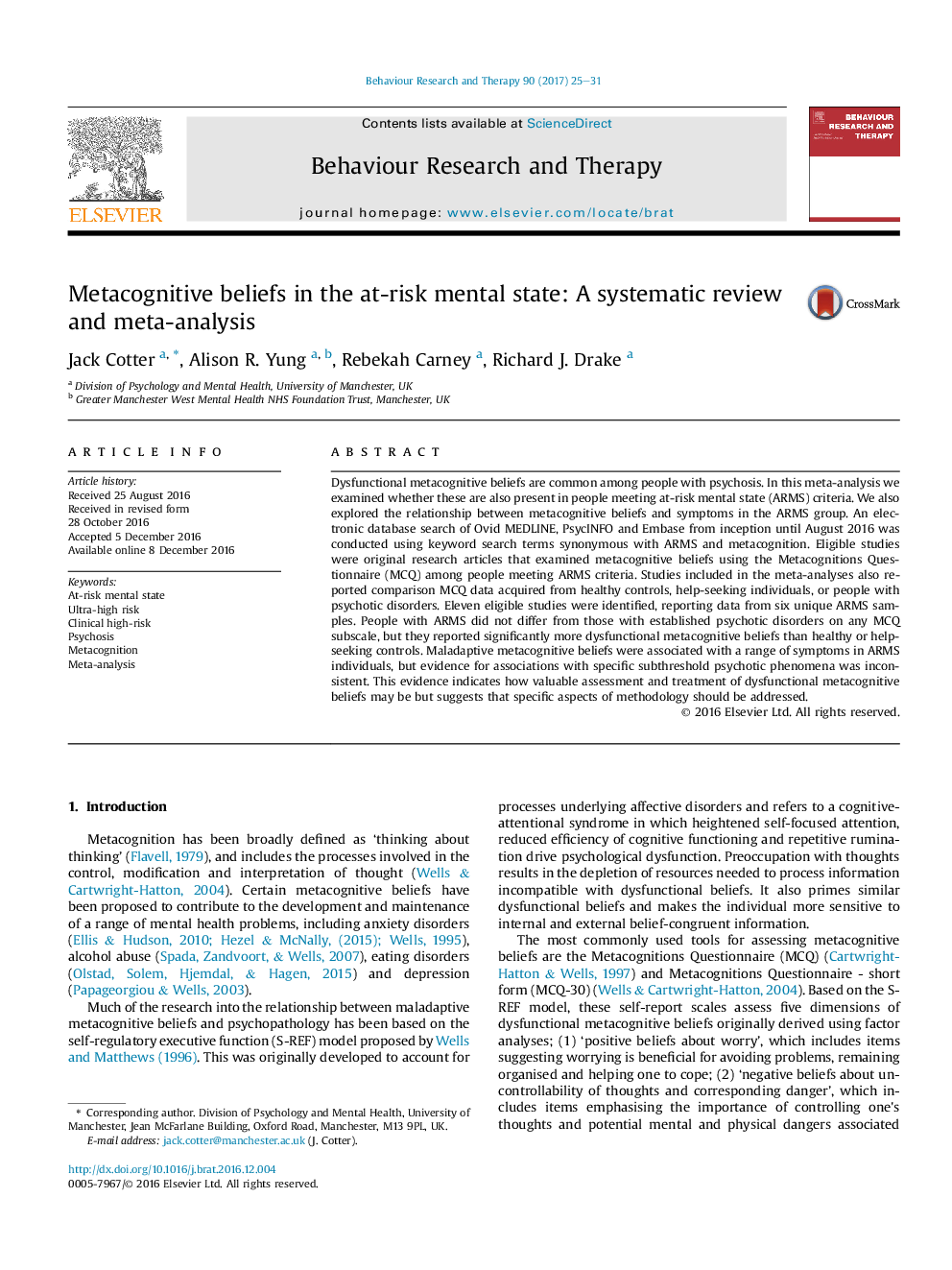ترجمه فارسی عنوان مقاله
اعتقادات فراشناختی در حالت روانی در معرض خطر: بررسی منظم و متاآنالیز
عنوان انگلیسی
Metacognitive beliefs in the at-risk mental state: A systematic review and meta-analysis
| کد مقاله | سال انتشار | تعداد صفحات مقاله انگلیسی |
|---|---|---|
| 120181 | 2017 | 7 صفحه PDF |
منبع

Publisher : Elsevier - Science Direct (الزویر - ساینس دایرکت)
Journal : Behaviour Research and Therapy, Volume 90, March 2017, Pages 25-31
ترجمه کلمات کلیدی
وضعیت روحی در معرض خطر، ریسک فوق العاده بالا، بالینی بالینی، روانپریشی فراشناخت، متاآنالیز،
کلمات کلیدی انگلیسی
At-risk mental state; Ultra-high risk; Clinical high-risk; Psychosis; Metacognition; Meta-analysis;

